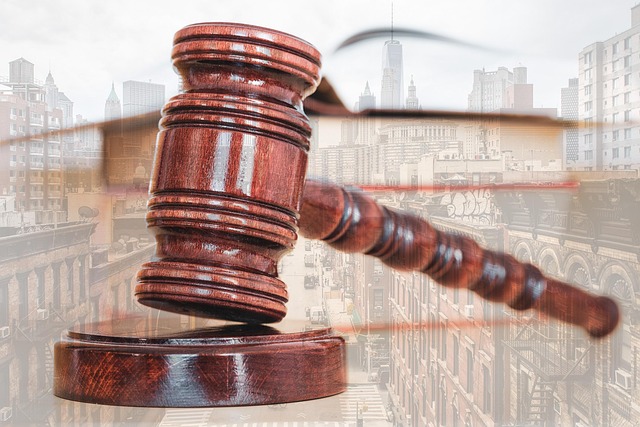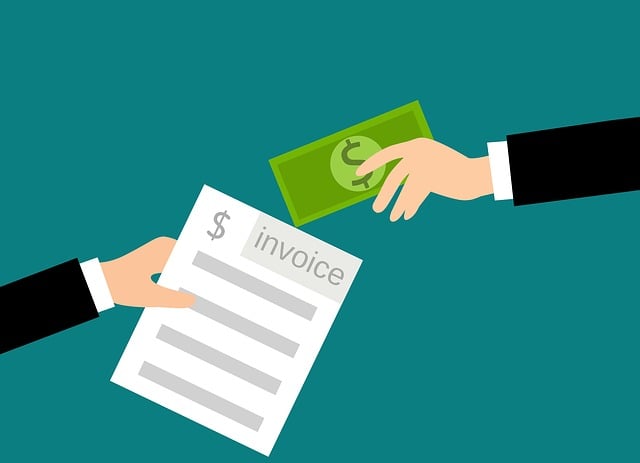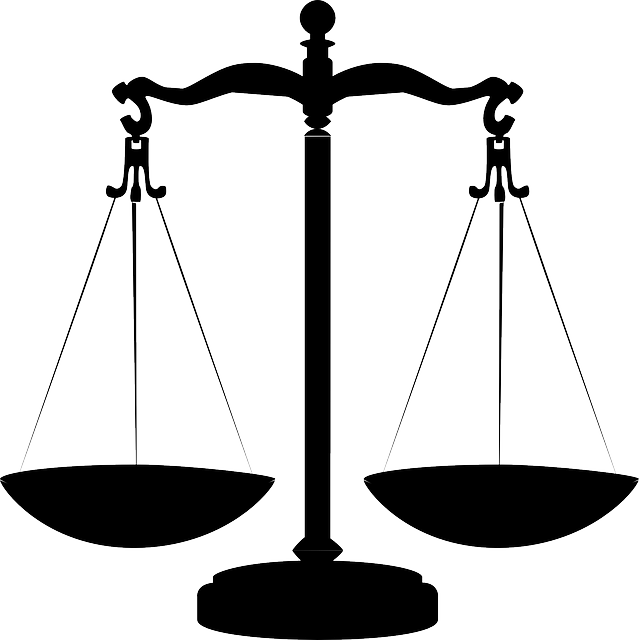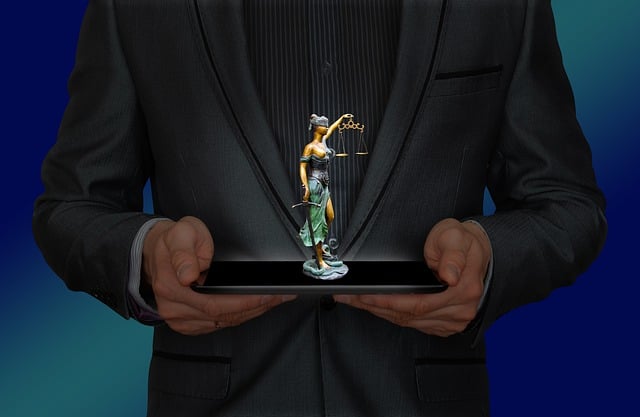Unraveling Trucking Company Liability: Complexities of Diverse Operations

Trucking companies face substantial legal risks due to their complex operations involving vehicles,…….
In the vast and interconnected global logistics network, trucking companies play a pivotal role in transporting goods, facilitating trade, and sustaining economies. However, with this critical role comes an inherent level of responsibility—trucking company liability. This concept encompasses the legal, ethical, and financial obligations that trucking businesses must navigate to ensure safety, compliance, and sustainable operations.
This article delves into the multifaceted world of trucking company liability, exploring its historical foundations, global implications, economic drivers, technological innovations, regulatory frameworks, challenges, and future trajectory. By examining these aspects, we aim to provide a comprehensive understanding of this vital component in the logistics sector. Readers will gain insights into the complex web of responsibilities that underpin the efficient and responsible movement of goods.
Definition and Core Components:
Trucking company liability refers to the legal and operational obligations borne by entities involved in road transportation of goods. It encompasses a broad spectrum, including financial responsibility for accidents or damage caused during transit, compliance with safety regulations, labor practices, environmental impact, and adherence to contractual agreements.
The core components include:
Financial Liability: Trucking companies are responsible for compensating individuals or entities affected by their operations, such as victims of accidents or damaged goods owners. This often involves insurance coverage and liability limits set by regulatory bodies.
Safety Compliance: Ensuring driver safety, vehicle maintenance, and adherence to traffic rules is paramount. Companies must implement robust training programs, regular inspections, and monitor driver behavior to minimize risks.
Environmental Stewardship: Reducing the carbon footprint of trucking operations is crucial. This includes adopting fuel-efficient technologies, implementing eco-friendly practices, and complying with environmental regulations.
Labor Relations: Fair treatment of employees, including drivers and support staff, is essential. Companies must adhere to labor laws, negotiate fair contracts, and maintain positive working relationships.
Contractual Obligations: Trucking companies enter into agreements with shippers, carriers, and other stakeholders. These contracts outline services, payment terms, and liability clauses, which must be fulfilled.
Historical Context:
The concept of trucking company liability has evolved over time, influenced by technological advancements, changing economic landscapes, and shifting societal expectations. Historically, the absence or weakness of regulations led to unpredictable and often hazardous road conditions. The 20th century witnessed the rise of safety standards and insurance requirements, signaling a shift towards accountability in the industry.
The global financial crisis of 2008 also played a role in tightening regulatory norms, emphasizing the need for greater transparency and oversight in trucking operations. Today, with the digital transformation of logistics and increasing public scrutiny on environmental issues, liability management has become more complex and critical.
Trucking company liability is not confined to individual nations; it operates within a global framework influenced by international trade agreements, cultural differences, and varying legal systems. Here’s an overview of its international impact and emerging trends:
| Region | Key Trends | Regulatory Landscape | Economic Factors |
|---|---|---|---|
| North America | Stricter emission standards, driver rest time regulations | Stringent safety and environmental regulations, e.g., FMCSA (U.S.), TSCA (Canada) | High demand for efficient logistics, growing e-commerce sector |
| Europe | Focus on road safety, digitalization of transport, green initiatives | EU’s Road Safety Action Plan, Euro VI emission standards | Economic integration, cross-border trade, stringent labor laws |
| Asia Pacific | Rapid urbanization driving demand, concerns over driver welfare | Varies by country; e.g., India’s CVST (Commercial Vehicles Safety Training), Japan’s strict safety standards | Rapid economic growth, complex supply chains, increasing consumer expectations |
| Middle East & Africa | Growing infrastructure investment, focus on road safety | Varies across countries; some adopting international standards | Oil and gas trade, regional integration, emerging e-commerce markets |
Impact of Globalization:
Standardization vs. Local Regulations: While globalization has led to some harmonization of standards, local regulations still vary widely, presenting challenges for multinational trucking companies.
Cross-Border Trade Facilitation: On the positive side, global trade agreements encourage easier movement of goods and vehicles across borders, streamlining logistics operations.
Regional Differences:
North America: Known for its well-developed trucking industry, with advanced safety and environmental standards. The U.S. Federal Motor Carrier Safety Administration (FMCSA) sets key regulations.
Europe: Emphasizes road safety, digital innovation, and green initiatives. The European Union’s regulatory framework ensures consistency across member states.
Asia Pacific: Rapidly growing economies drive demand for efficient trucking services. Countries like China and India have unique challenges related to infrastructure and labor regulations.
Middle East & Africa: Significant investments in infrastructure are reshaping the landscape, but varying legal systems pose challenges.
Trucking company liability has a profound impact on economic systems, influencing market dynamics, investment patterns, and overall business strategies within the logistics sector.
Market Dynamics:
Supply Chain Efficiency: Effective liability management contributes to streamlined operations, leading to cost savings and improved efficiency in the supply chain.
Competitive Landscape: Strict liability standards can level the playing field, preventing costly accidents or environmental incidents that might disrupt competitors’ operations.
Investment Patterns:
Technology Upgrades: The push for safety, environmental sustainability, and efficiency drives investments in advanced technologies like telematics, autonomous vehicles, and electric trucks.
Risk Management: Companies allocate resources to risk assessment, insurance, and legal consultations to mitigate potential liabilities.
Economic Growth Drivers:
E-commerce Boom: The rapid growth of online retail has fueled demand for quick and reliable trucking services, creating opportunities but also increasing operational pressures.
Global Supply Chains: Complex global supply chains require robust liability management to ensure the continuity of trade and maintain consumer confidence.
Technological innovations have revolutionized trucking company liability, offering new tools for safety, efficiency, and compliance management. Here’s a glimpse into some significant advancements:
Telematics and GPS Tracking: These systems enable real-time monitoring of vehicle location, driver behavior, and operational data. They assist in route optimization, fleet management, and risk assessment.
Autonomous Vehicles: Self-driving trucks promise to reduce human error, improve road safety, and optimize routes. However, they also raise new liability questions regarding ownership and responsibility in case of accidents.
Internet of Things (IoT): IoT sensors can monitor vehicle health, tire pressure, and fuel efficiency, enabling predictive maintenance and reducing operational risks.
Blockchain Technology: Beyond its use in cryptocurrencies, blockchain offers secure, transparent record-keeping for contracts, cargo tracking, and liability claims, enhancing trust and accountability.
Artificial Intelligence (AI): AI algorithms can analyze vast datasets to identify trends, predict maintenance needs, and optimize routes, improving safety and efficiency.
These advancements present both opportunities and challenges in the realm of trucking company liability, requiring businesses to adapt and stay ahead of the curve.
Key policies, regulations, and legislative frameworks play a pivotal role in defining and shaping trucking company liability across different jurisdictions.
International Agreements:
Regional Regulations:
National Laws:
Trucking company liability faces several challenges and criticisms that require strategic solutions to ensure its effectiveness and sustainability.
Main Challenges:
Compliance Complexity: The vast array of regulations and constantly evolving standards make it challenging for companies to stay updated and compliant, especially in the face of global variations.
Data Management: Effective liability management relies on data collection and analysis. However, ensuring data privacy, security, and interoperability across systems remains a significant hurdle.
Cost of Compliance: Adhering to stringent safety and environmental standards can be costly, particularly for smaller trucking companies, potentially leading to price increases or reduced competitiveness.
Driver Shortage: The demand for skilled drivers exceeds supply in many regions, impacting operational efficiency and safety due to driver fatigue and stress.
Proposed Solutions:
Standardization and Harmonization: International and regional organizations should work towards creating consistent standards, making it easier for companies to comply across borders.
Digital Transformation: Embracing digital technologies can streamline compliance processes, enhance data security, and improve communication between stakeholders.
Public-Private Partnerships: Collaborating with governments on training programs and infrastructure development can address driver shortages and improve safety.
Incentivizing Sustainability: Governments can offer incentives for embracing eco-friendly practices, encouraging the adoption of green technologies.
Volvo Trucks, a leading global manufacturer, has implemented a comprehensive liability management strategy centered on safety. Their “Safety First” initiative focuses on three key areas: vehicle technology, driver training, and operational procedures. By investing heavily in research and development, Volvo has pioneered advanced safety features like collision avoidance systems, lane-keeping assist, and automated emergency braking. They also offer extensive driver training programs, emphasizing defensive driving techniques and regular skill assessments. This multi-faceted approach has reduced accident rates significantly, setting a benchmark for industry standards.
Lessons Learned:
Germany’s trucking industry has embraced environmental stewardship through the “Green Logistics” initiative, which aims to reduce carbon emissions and promote sustainable practices. The program includes incentives for companies adopting fuel-efficient vehicles, alternative fuels, and eco-friendly operating procedures. Government partnerships with technology providers have facilitated the transition to electric and hybrid trucks. As a result, Germany has seen a notable decline in transportation-related emissions, positioning it as a leader in green logistics.
Key Takeaways:
The trucking company liability landscape is poised for significant evolution, shaped by technological advancements, shifting consumer expectations, and global trends. Here’s a glimpse into potential future prospects:
Emerging Trends:
Autonomous and Electric Vehicles: The convergence of autonomous technology and electric vehicles will transform trucking operations, improving safety and reducing environmental impact. However, new liability frameworks may be needed to address ownership, responsibility, and insurance issues.
Digital Twin Technology: Creating digital replicas of physical assets (vehicles, drivers) enables predictive maintenance, optimized routes, and enhanced safety monitoring.
Blockchain-based Supply Chain Management: Blockchain offers secure, transparent tracking of goods, enabling real-time visibility, improved accountability, and efficient dispute resolution.
Micro-logistics and On-demand Services: The rise of e-commerce has fueled demand for flexible, on-demand logistics solutions, challenging traditional trucking models.
Strategic Considerations:
Digital Integration: Investing in digital technologies is crucial to stay competitive, improve operational efficiency, and enhance data-driven decision-making.
Sustainability as a Competitive Advantage: Embracing green initiatives can differentiate companies, attract environmentally conscious shippers, and reduce long-term costs.
Data Analytics for Risk Management: Leveraging data analytics to predict risks, optimize routes, and personalize services will be a key differentiator in the future.
Adaptability and Agility: The trucking industry must remain agile to adapt to rapidly changing market dynamics, consumer preferences, and regulatory landscapes.
Trucking company liability is an evolving concept that reflects the broader challenges and opportunities in global logistics. As the industry navigates uncharted territories, from autonomous vehicles to digital transformation, effective liability management will remain a critical success factor. By embracing technological advancements, fostering sustainability, and prioritizing safety, trucking companies can ensure the responsible movement of goods while staying competitive in an ever-changing landscape.
The future prospects for trucking company liability are promising, with opportunities arising from innovation, globalization, and heightened environmental consciousness. As we move forward, a balanced approach that considers economic viability, safety, environmental stewardship, and consumer expectations will be essential to shaping a sustainable and efficient global logistics network.
Q: How do global variations in regulations affect trucking companies operating internationally?
A: International trucking companies must navigate a complex web of regulations, leading to increased compliance costs and operational challenges. Standardization efforts by organizations like the ITF can help streamline these processes.
Q: What role does technology play in enhancing driver safety?
A: Technologies such as advanced driver-assistance systems (ADAS), telematics, and GPS tracking enable real-time monitoring, driver behavior analysis, and improved route planning, contributing to safer driving conditions.
Q: How can trucking companies ensure environmental sustainability without increasing operational costs?
A: By adopting fuel-efficient vehicles, alternative fuels, and eco-friendly practices, companies can reduce their carbon footprint while benefiting from government incentives and public recognition.
Q: What are the key considerations for managing driver shortages in the trucking industry?
A: Addressing driver shortages requires a multi-faceted approach, including improving working conditions, offering training programs, implementing technology to optimize routes, and collaborating with governments on recruitment initiatives.
Q: How can blockchain technology improve liability management?
A: Blockchain provides secure, transparent record-keeping for contracts, cargo tracking, and claims resolution, enhancing trust and accountability in the supply chain.

Trucking companies face substantial legal risks due to their complex operations involving vehicles,…….

Trucking company liability is a complex, multifaceted issue driven by diverse entities, vehicles, an…….

Trucking company liability involves navigating a complex interplay of state and federal regulations,…….

Trucking company liability is a complex, globally varied landscape governed by diverse regulations a…….

Trucking companies have a multifaceted corporate responsibility that goes beyond safe goods transpor…….

Trucking company liability involves managing diverse risks from accidents to legal claims, including…….

In the critical area of transportation law, understanding trucking company liability is key to ensur…….

Trucking company liability policies are essential protections for long-distance transportation busin…….

The legal framework governing trucking company liability is a complex blend of federal and state reg…….

The trucking industry faces growing legal challenges due to increased trucking company liability cas…….